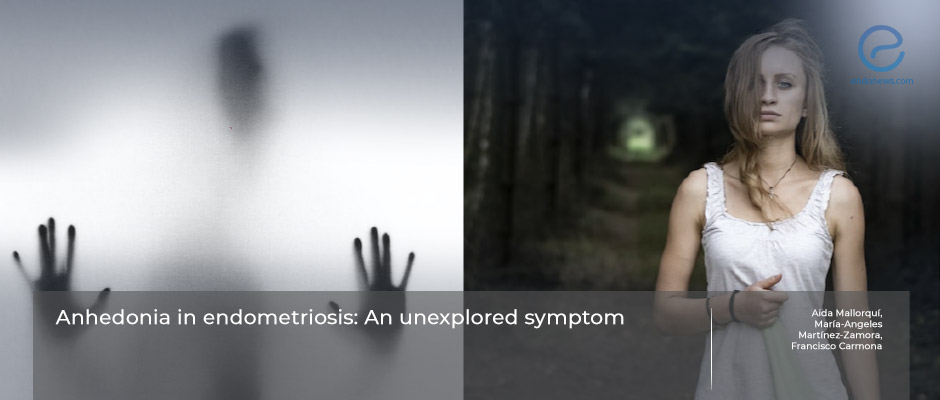Anhedonia and its relation to endometriosis as a sole symptom
Dec 9, 2022
Chronic pelvic pain contributes to anhedonia!
Key Points
Highlight
- The hedonic functional deficiencies also known as "anhedonia" may be the sole psychological symptom in endometriosis patients that needs to be addressed more clearly.
Importance
- The alterations in the mental health of chronic disease sufferers such as endometriosis is a serious issue that significantly affects the quality of life of these patients.
- As one of the most common symptoms, chronic pelvic pain contributes to psychological stress.
What’s done here
- This is a review study aiming to emphasize the psychological impacts of endometriosis and identify the anhedonia that is mostly caused by chronic pelvic pain.
Key results
- Emotional stress can both be a trigger and a result of the disease in endometriosis patients.
- The delay in endometriosis diagnosis is one of the most important contributors to stress.
- The normalization of pelvic pain symptoms is also thought to be a big contributor to the delay in the diagnostic process.
- The prevalence rate of depression and anxiety among endometriosis patients is around 30%.
- Increasing use of antidepressants is reported among patients who are on hormonal contraceptives.
- The prevalence rate of depression goes up to as high as 86% in endometriosis patients who suffer from chronic pain.
- Patients can not cope with the psychological burden as well as adopt positive health behaviors without an effective approach to their symptoms.
Lay Summary
"Anhedonia may be defined as a broad category of hedonic function deficiencies, including diminished motivation or enjoyment capacity. It has been an area of interest for a long time in psychiatric disorders and has been crucial in some diagnoses such as being a major criteria component in the diagnosis of major depression. Recently, research on anhedonia has expanded beyond psychiatric illnesses, particularly in chronic health conditions.
Upon the newly discovered findings of chronic pain sufferers having increased rates of anhedonia, Mallorqui et al. from Barcelona, Spain, wanted to emphasize the psychological impacts of endometriosis and the diminished hedonic tone in these patients caused by chronic pain. The review study was published in a recent issue of the journal Frontiers in Psychology.
The authors first touch on the subject of the psychosocial impact of endometriosis on women. It is stated that being etiologically multifactorial, emotional stress can both be a trigger and a result of the disease in endometriosis patients. One of the most important factors contributing to the stress these patients feel is the delay in diagnosis, which can come up to as long as 10 years. The main reason behind this is believed to be the normalization of dysmenorrhea by other people. As chronic diseases do not get the much-needed attention, the sufferers do not get to learn to cope with the psychological burden as well as adopt positive health behaviors. The literature findings strongly prove the prevalence rate of depression and anxiety among endometriosis patients to be around 30%. Moreover, there have been reports of increasing use of antidepressants among patients who are on hormonal contraceptives. On the other hand, self-preservation seems to be a protective factor regarding mental illness.
Chronic pelvic pain is known to be a common stressor and the prevalence rate of depression has shown to be as high as 86% in endometriosis patients who suffer from chronic pain.
Considering all these findings, the authors suggest that a clinical screening of anhedonia in these patients could aid in identifying physiological and psychological problems. Anhedonia apart from depression should also be considered in endometriosis cases. It is suggested that sustaining hedonic functioning is essential for ensuring the well-being and a better quality of life of endometriosis patients. To accomplish this, it is important to thoroughly assess any potential associations between anhedonia and endometriosis in order to design effective interventions for these patients.
Research Source: https://pubmed.ncbi.nlm.nih.gov/36118502/
endometriosis chronic pelvic pain anhedonia depression anxiety mental health hedonic

